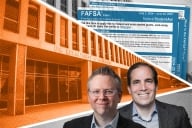You have /5 articles left.
Sign up for a free account or log in.
When news broke this spring that some college admissions counselors also were moonlighting as private admissions consultants, many college admissions experts were angry not only at the conflict of interest, but at the fact that the ethics code for private admissions consultants didn't ban the practice.
Now it does. The Independent Educational Consultants Association has changed its ethics code to bar people who work in college admissions from also working as private college admissions consultants. This represents a major shift for the association, which until now has only required that consultants report such dual roles and pledge to avoid conflicts. Critics have charged that it is fundamentally wrong for someone who has access to inside information about admissions practices to simultaneously be advising clients on the admissions process, however much disclosure is involved.
The association has made other changes in its ethics rules as well. Gifts from colleges to admissions consultants may no longer exceed a $50 value. In addition, it will now be official association policy that Web sites and other promotional material must be designed to decrease, rather than encourage, anxiety over the admissions process. That means that boasting about admit rates of clients or scary text about the high rejection rates at many elite colleges will disqualify private counselors from group membership.
In the month since it enacted the new rules, the association has already turned away about six prospective members, saying that they don't meet the new standards.
"We think colleges should only want to work with consultants that are above reproach," said Mark Sklarow, executive director of the association. The idea of the tougher rules, in the wake of criticism over conflicts of interest, is to show that "we're not doing anything unethical, immoral, underhanded. If we are not playing to parent anxieties, we can work together more effectively."
The dual role -- of college admissions counselors simultaneously working as consultants -- captured attention this spring. But Sklarow said that the association went beyond that because of other problems that have been surfacing. For example, he said that the ban on gifts in excess of $50 is being adopted because of an escalation of "giving" to consultants by some admissions officers.
Many of the gifts were associated with visits to campuses arranged by admissions offices. While reimbursement for travel expenses associated with those visits will still be permitted, gifts that are added on will not. For example, Sklarow said that admissions consultants reported being offered tickets to National Football League games by one college, or offered professional massages while visiting another college. (He declined to identify the colleges, and said that the massages were literally just that, and were not a euphemism for other services.)
While Sklarow said he wasn't bothered by colleges giving admissions consultants a T-shirt or hat, or paying for educational visits, the trend has been "from being about educational expenses to gratuitous giving." The ban on giving goes both ways -- so admissions offices that have been receiving swag from consultants may need to expect more modest fruit baskets this Christmas.
The other new ethics requirement -- that counselors have a responsibility to reduce student and parent anxiety -- is more subjective than the measures about conflict of interest. But Sklarow said it may be particularly important. Some private admissions consultants -- including some of the most prominent -- regularly give talks or have material on their Web sites that play off of the frenzy that some parents feel about the college admissions process. Sklarow said that eventually, the association will review all materials used by all members -- and that for now, it will review any materials from those seeking membership -- and will use this to block such material.
"If we look at a Web site or materials that emphasize getting in as opposed to a good match, that is immediate grounds" for rejection, Sklarow said. Already, he added, a number of members have changed their Web sites. Sklarow stressed that he doesn't view removal of such materials as hurting anyone. Many critics have noted that the highest end consultants tend to specialize in exceptionally talented, well educated clients -- those who would have gotten in anyway in many cases, so having a high admit rate may not say much.
"I'd rather know how many of you have kids you have worked with who are happy and thriving," Sklarow said.
Barmak Nassirian, associate executive director of the American Association of Collegiate Registrars and Admission Officers, has been a leading critic on conflict of interest in admissions, and he applauded the tougher stance being taken by the private counselors. He said it was "astonishing" that some of these rules haven't been in place previously, but that he found the new rules "quite positive" and "necessary ingredients for ethical behavior."
Nassirian said that the rules on minimizing family anxiety may be among the most significant changes. Far too many counselors, he said, have built their businesses on "ominous information" and "cynical capitalizing on the fears and lack of information of families."
At the same time, Nassirian said that he has concerns about the private counseling industry, even as practiced by "the most ethical" of its members, under these new guidelines. "This is something that is done for a fee, and inherently the 'haves' benefit," he said. When the college admissions process for wealthier students is eased and enhanced by private counselors -- while others don't have access -- "is this equitable?" he asked.








